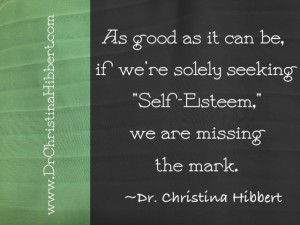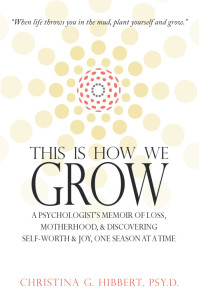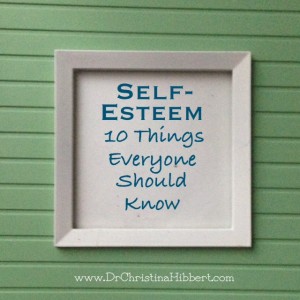Self-Esteem & Self-Worth
Self-Esteem & Self-Worth:
10 Things Everyone Should Know
Self-Esteem & Self-Worth: What I Know
I didn’t set out to become an expert on self-esteem and self-worth. It just sort of happened. The more I worked with clients and the more I talked with friends, the more I kept seeing the same pattern emerge—that deep down, everyone feels the same, that, at our core, we all just want to belong. We all just want to be loved.
I’ve also seen that most of us don’t always feel that love—from others, from ourselves, and from our Higher Power. As I discussed this with one of my closest friends a few months ago, she said, “That’s what you do. That’s your job. You help people feel their worth and value.” I smiled and nodded. That’s exactly what I do.
So, in honor of helping people feel their true worth and value, I’d like to share some of the things I have learned about self-esteem and self-worth. There is much to share, and still much more for me to learn, since I’m in this self-esteem/self-worth game too. Let’s start with 10 basic truths I have come to understand, both as a psychologist and, especially, as a fellow human being, just wanting to belong. Just wanting to be loved. Just the same as you.
Self-Esteem & Self-Worth: 10 Things Everyone Should Know
1) Most of us are seeking self-esteem and self-worth whether we recognize it or not. As I wrote in another article, “self-esteem” is “a hot topic; a Google search will return 76, 200,000 results! There is plenty of advice out there on how to ‘understand’ self-esteem, ‘evaluate’ self-esteem, and ‘improve’ self-esteem, on teaching self-esteem to kids, teens, women, couples, grandparents! (OK, I didn’t see any on grandparents, but I’m sure it’s out there somewhere). As one major psychology site said, ‘Perhaps no other self-help topic has spawned so much advice and so many (often conflicting) theories.’[i] And I agree.”[ii] As I said before, I see it all the time–with my clients, friends, family members. It seems we’re almost all searching for that true sense of who we are, that confidence that we are enough.
2) Most of us don’t know what “self-esteem” really even means. It’s hard to define and even harder to “have.” I’ve come across many definitions of self-esteem, but the one I think fits best comes from my favorite book on self-esteem, Nathaniel Branden’s “Six Pillars of Self-Esteem.” He defines self-esteem as: “the experience that we are appropriate to life and to the requirements of life. More specifically, self-esteem is: 1. Confidence in our ability to think…[and] cope with the basic challenges of life, and 2. Confidence in our right to be successful and happy, the feeling of being worth, deserving, entitled to assert our needs and wants, achieve our values, and enjoy the fruits of our efforts.”[iii] How’s that for a definition?
3) Self-esteem plays a role in all of our lives, whether we understand it or not. We may not fully understand what self-esteem means, but that doesn’t seem to matter. It still impacts almost all of our lives in pretty incredible ways. As Branden writes, “The level of our self-esteem has profound consequences for every aspect of our existence: how we operate in the workplace, how we deal with people, how high we are likely to rise, how much we are likely to achieve—and in the personal realm, with whom we are likely to fall in love, how we interact with our spouse, children, and friends, what level of personal happiness we attain.”[iii]
4) Most of our struggles, at their core, have something to do with unhealthy self-esteem. As much as self-esteem is part of our lives, it makes sense that some of our biggest struggles are a result of unhealthy self-esteem. Relationship issues, depression, bullying, narcissism, anxiety, fears, failures, worry, financial trouble, stress, aggression, antisocial behavior, delinquency[viii]–even many of our losses tend to have elements of low self-esteem that fuel them.
5) Research shows high self-esteem is positively correlated with several desirable traits and states. If low self-esteem is correlated with a host of negative traits, it makes sense, then, that healthy self-esteem would be correlated with the positives. As Branden writes, “Healthy self-esteem  correlates with rationality, realism, intuitiveness, creativity, independence, flexibility, ability to manage change, willingness to admit and correct mistakes, benefolence, and cooperativeness,”[iii] and that’s just the beginning.
correlates with rationality, realism, intuitiveness, creativity, independence, flexibility, ability to manage change, willingness to admit and correct mistakes, benefolence, and cooperativeness,”[iii] and that’s just the beginning.
6) Self-esteem and relationships are inseparably connected. Our relationships impact our sense of who we are and how we feel about ourselves, and how we feel about ourselves impacts the types and lengths of our relationships too. As researcher Brene Brown writes: “If we want to fully experience love and belonging, we must believe we are worthy of love and belonging.”[iv] Yet “our sense of belonging can never be greater than our level of self-acceptance.”[v] Research shows that humans have a deep-seated need for love and belonging. And, this statement helps us see just how much our sense of love and belonging has to do with our self-esteem. Might we actually prevent the love we so desperately desire? The sad truth is, “Yes.” But, does that mean we can do something about it? The happy truth is, “Yes.”
7) It’s not possible to have “too much” self-esteem. This is another misunderstanding. We think those who are overly confident or narcissistic are “full of self-esteem.” But, inferiority and superiority complexes are just different portrayals of the same core issue: low self-esteem. It is no more possible to have too much self esteem as it is to “have too much physical health…. Persons of high self-esteem are not driven to make themselves superior to others; they do not seek to prove their value by measuring themselves against a comparative standard. Their joy is in being who they are, not in being better than someone else.”[iii]
8) Many of us seek to “have” self-esteem, but self-esteem is hard to “have” because it’s based mostly on things that change. Why is it so hard to “have” healthy self-esteem? For one, because self-esteem is not a concrete thing, like a book. It’s a construct, and one that, as I mentioned in #1, can be hard to understand. Also, self-esteem is based on how we think, feel, and believe about ourselves and what we do, and this can easily change when life changes. (For more on this, read, “5 Reasons Self-Esteem is a Myth.”) It’s hard to “have” something that changes so easily.
9) As good as it can be, if we’re solely seeking “self-esteem,” we are missing the mark. It’s not just about how we think and feel about ourselves, what we do, or what others believe about who we are. At our core, we are more than we realize. As one self-esteem expert writes, “The core self might also be likened to a seed. Think of a newborn baby. Like that seed, the baby is already whole, possessing in embryo every attribute needed in order to flourish. The baby is complete, yet certainly not completed (that is, not perfect or fully developed).”[vii] This, to me, is self-worth, something not only worthy of our seeking, but crucial to our well-being in life.
10) At the core of self-esteem is self-worth, the sense of timeless, unchanging, and inborn value we each possess. If self-esteem is hard to comprehend, it seems self-worth may be even more so. Yet, self-worth, a deeper sense of who we really are, is one of the most important truths we can uncover in life. So, let’s try to understand it. I define self-worth as: “the ability to comprehend and accept my true value—to understand I am more than my body, mind, emotions, and behaviors, to see myself as God sees me, to accept His love for me, and to learn to love myself in like manner” (Read more on self-worth here).[vi] When we can tap into our deeper, truer, unchanging self, we will naturally exude self-esteem. And that is something everyone should definitely know.
Be sure to check out Dr. Hibbert’s Amazon Bestseller, This is How We Grow–
available now on Amazon.com!
Join my This is How We Grow Personal Growth Group!
FREE. Online. Growth. What more could you ask for?
Don’t miss a thing!
SUBSCRIBE, below, “like” my Facebook pages (Dr. Christina Hibbert; This Is How We Grow) and follow me on Twitter,Pinterest, & Instagram!
[subscribe2]
Related Posts/Articles
[ii] Hibbert, C. (2013). 5 Reasons Self-Esteem is a Myth.
[iii] Branden, N. (1995). The Six Pillars of Self-Esteem: The definitive work on self-esteem by the leading pioneer in the field. Bantam Books: pp. 4-5.
[iv] Brown, B. (2010). The Gifts of Imperfection: Let Go of Who You Think You’re Supposed to Be and Embrace Who You Are. Hazeldon; Center City, MN: p. 23.
[v] Ibid. p. 27.
[vi] Hibbert, C. (2013). If Self-Esteem is a Myth, then What is the Truth: Understanding Self-Worth.
[vii] Schiraldi, G.R. (2007). 10 Simple Solutions for Building Self-Esteem: How to end self-doubt, gain confidence, and create a positive self-image. New Harbinger Publications; Oakland, CA: p. 7.
[viii] Donnelin, et. al. (2005). Low Self-Esteem is Related to Aggression, Antisocial Behavior, & Delinquency. Psychol Sci; Apr, 16(4):328-35.


